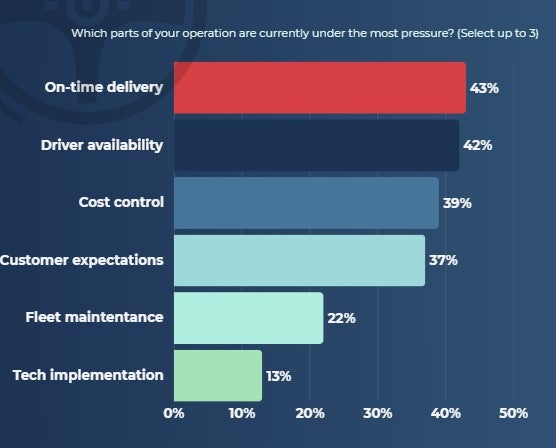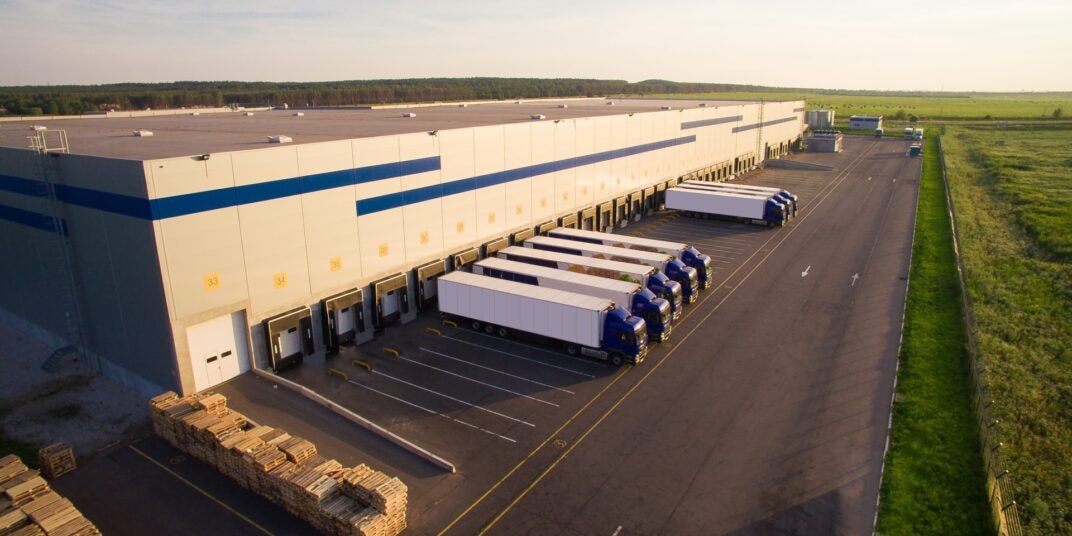One thing’s for sure – the logistics industry isn’t slowing down anytime soon. As businesses seek to combat the labor shortage, reduce operational costs, and adopt new technology, third-party logistics providers (3PLs) could be an effective solution.
According to Tech.co’s Logistics Report, Moving Goods with Fewer Hands, a significant number of businesses are now relying on 3PLs for support, with 56% of companies relying on third parties.
However, is this beneficial for businesses? And what are the potential drawbacks? Below, we outline the reasons behind the increased use of 3PLs and what this could mean for logistics businesses.
What is Third-Party Logistics?
3PLs offer services to businesses to help with their day-to-day operations, which often encompass elements such as warehousing, inventory management, fulfilment, and shipping.
In an agreement, a 3PL will act as the middleman between a logistics company and their supply chain management tasks. Businesses will often turn to 3PLs when they feel they lack the resources or expertise to take on certain roles.
Why Are More Freight Firms Exploring Third-Party Delivery Support?
Companies could turn to 3PLs for a variety of reasons, including the need for more expertise on a specific stage of the supply chain, to wanting to reduce operational costs. We break down the full list of benefits and drawbacks of using 3PLs below.
Recent data from Tech.co shows that more and more businesses are relying on 3PLs. Among logistics professionals impacted by the ongoing driver shortage, 56% have had to rely on third-party carriers.
Likewise, this development could be indicative of the widespread impact logistics professionals are facing as a result of ongoing issues in the industry.
According to our report, 43% of businesses are facing on-time delivery issues, and 42% are dealing with driver availability setbacks. Further current problems we identified include operational costs and customer satisfaction levels.
Using 3PLs could be a way for businesses to manage and control these ongoing issues.

Which parts of your operation are currently under the most pressure? Source: Tech.co
Benefits of Using Third-Party Carriers
Improved customer satisfaction
Our report found that driver constraints had affected a company’s ability to occasionally meet customer expectations 41% of the time.
Customers like it when their deliveries are on time. If you’re using additional hands through a 3PL you’ll be able to meet demand better and therefore improve customer approval ratings.
Likewise, a 3PL could provide more in-depth data to customers, keeping them in the loop, such as increased inventory visibility.
Utilize expertise and experience
3PLs have a strong and complex understanding of the logistics industry and supply chain management. Their experience dealing with different scenarios and regulations means they can provide expert insight when needed, in order to boost your business to the next level.
Potential cost benefits
80% of shippers have reported that using 3PLs results in logistics cost savings, in particular because of factors such as improved efficiency and reduced overhead costs.
3PLs could cut down the costs of personnel, warehousing, equipment, transport, and technology. Given that 39% of the logistics businesses in our report cited cost control as a key concern, 3PLs could be a beneficial move for businesses looking to improve their bottom line.
However, it’s important to note that 3PLs could end up costing a company more in the long run. We explore this in more detail below.
Flexibility and scalability
With the assistance of a 3PL, companies can scale up or down depending on demand. This is because they’ll have access to adaptable solutions which a 3PL can utilize to suit various scenarios, such as shifts in the market. For example, this can be achieved through flexible warehouse space or staffing resources.
85% of logistics businesses are operating at full capacity, according to our report. Investing in a 3PL could give businesses a way to adjust to increasing demand and maximize profits.

Drawbacks of Using Third-Party Carriers
Loss of control
Having another company decide what is best for your business at times means that some level of control will be relinquished. You may lose control over key elements of your business, including the direct oversight of quality control, customer service, and compliance.
Communication challenges
As well as a lack of control, difficulties communicating could mean the company suffers as a result. If your business has employed a 3PL, timely and clear communication needs to be maintained, and this can be difficult if misunderstandings or discrepancies occur.
Potential increased costs
While there are certainly cost-related benefits to using a 3PL, it’s important to know exactly what you’re getting into. As competition rises, 3PLs could begin to start charging more for their services, and if they end up taking on a lot of your business’s operations, the cost can be expensive.
Likewise, there could also be hidden costs, such as additional fees, surcharges, and penalties. You should consider how beneficial, cost-wise, it will be for your logistics company before partnering with a 3PL. This will depend on your own company’s needs and goals.
Compatibility and integration issues
According to a survey by TheCodeWork, 58% of logistics respondents said that difficulty integrating new systems with legacy infrastructure was a barrier to improving operational efficiency.
Integrating third-party systems, processes, and cultures within your own business can be tricky, particularly if you and your company are already operating smoothly. This becomes an issue when taking on third-party technology in particular, which could cause problems if it is not compatible with your existing solutions.
If you want to balance reliance on 3PLs with developing your internal team, check out our breakdown of the best free AI training courses for logistics professionals.
Third-Party Carriers: Strategic Flexibility or Operational Risk?
3PLs can be beneficial for businesses for a number of reasons – they can provide expert insight on the industry, potentially save costs, and provide scalability and flexibility to ease the pressure of increasing freight demand.
However, there are potential drawbacks. Hidden costs, loss of control and communication, and integration issues could set your business back, rather than accelerate it forward.
Our report shows that logistics businesses are increasingly relying on 3PLs for operational support in an industry that doesn’t look like it is slowing down.
And, with 59% of logistics companies strongly agreeing that “America’s economy depends on fast, affordable, reliable freight movement,” 3PLs could be essential for providing next-level support to the industry.
